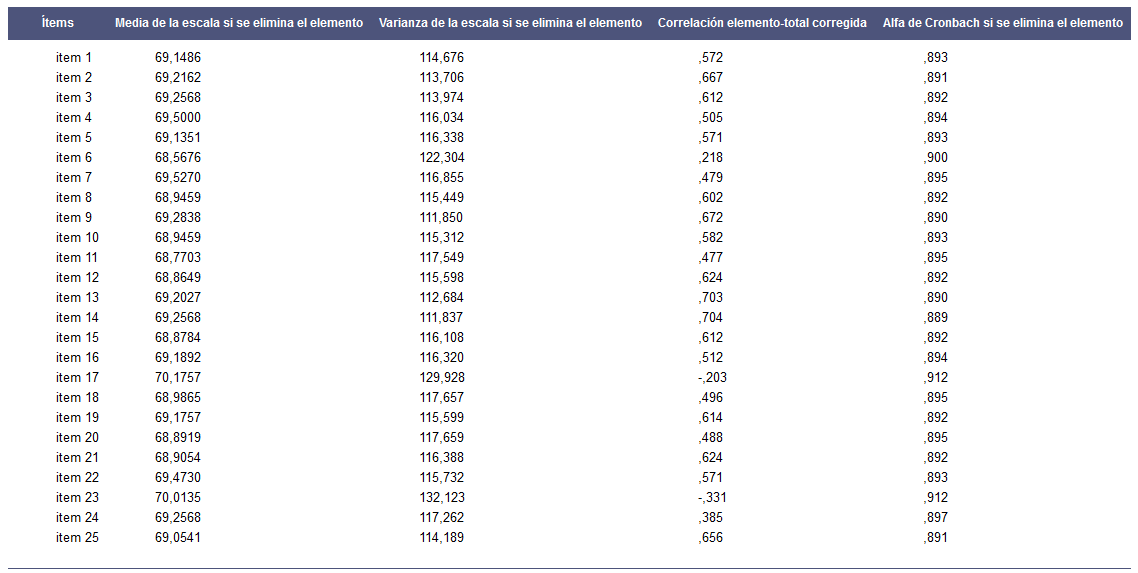Validation of an instrument to evaluate perception of sports preparation in high-performance judokas
Main Article Content
Abstract
Psychometric methods for the psychological control of training are more effective when they adapt their characteristics to the peculiarities of the sports discipline where they are used. There are no validated instruments to evaluate the psychological foundations related to the level of sports development achieved in judo. The objective of this research is to develop an instrument to evaluate the perceived sports preparation in judo. An instrument validation study was carried out. The designed test was applied to high performance Venezuelan judokas. Inferential statistics (Alpha Cronbach, Principal Components) were used. The instrument has internal consistency; its dimensions explain a high percentage of total variance.
Downloads
Article Details

This work is licensed under a Creative Commons Attribution-NonCommercial 4.0 International License.
Those authors who have publications with this journal, accept the following terms of the license Attribution-NonCommercial 4.0 International (CC BY-NC 4.0):
You are free to:
Share — copy and redistribute the material in any medium or format
Adapt — remix, transform, and build upon the material
The licensor cannot revoke these freedoms as long as you follow the license terms.
Under the following terms:
Attribution — You must give appropriate credit, provide a link to the license, and indicate if changes were made. You may do so in any reasonable manner, but not in any way that suggests the licensor endorses you or your use.
NonCommercial — You may not use the material for commercial purposes.
No additional restrictions — You may not apply legal terms or technological measures that legally restrict others from doing anything the license permits.
Notices:
You do not have to comply with the license for elements of the material in the public domain or where your use is permitted by an applicable exception or limitation.
No warranties are given. The license may not give you all of the permissions necessary for your intended use. For example, other rights such as publicity, privacy, or moral rights may limit how you use the material.
References
Campos-Carreño, M. A; Velasco C. B. & Araya J. P. (2020). Adaptación y validación de escalas de medición en el trabajo. Parte 1: bienestar social. Revista Información tecnológica. Vol. 31(5), 195-204
Denegri Coria, M; García Jara, C; González Rivera, N; Elgueta, H; Hueche, C. & Schnettler, B. (2021). Psychometric properties of a Food Buying Styles Scale (EEC-ALI) in University Students. Revista interamericana de psicología, 55(2). https://journal.sipsych.org/index.php/IJP/article/view/934
Del Monte Del Monte, L. (1998). Creación de un instrumento confiable con el fin de estudiar la autovaloración en el judo femenino. Revista Digital Buenos Aires 10(94). https://www.efdeportes.com/efd94/judo.htm
García Ucha, F. (2009) ¨Historia y actualidad de la psicología del deporte en Cuba¨. Revista de Iberoamericana de Psicología del Ejercicio y el Deporte, 4(2), 307-316. https://www.redalyc.org/pdf/3111/311126265009.pdf
González Carbllido, L. (2018). “Intervención psicológica e investigación aplicada en Psicología del deporte. ¿Sinergia o identidad?”. Teoría y práctica de la psicología del deporte en Iberoamérica, Vol. 1. Trujillo (Ed.)
Hernández Sampieri, R, y Mendoza Torres, C. P. (2018) Metodología de la investigación: las rutas: cuantitativa y cualitativa y mixta. México: Mc Graw Hill- Educación.
López Fernández, R., Avello Martínez, R., Palmero Urquiza, D., Sánchez Gálvez, S., & Quintana Álvarez, M. (2019). Validación de instrumentos como garantía de la credibilidad en las investigaciones científicas. Revista Cubana de Medicina Militar, 48(2(Sup),441-450. http://www.revmedmilitar.sld.cu/index.php/mil/article/view/390
Ordoqui Baldriche, J. A., González Carballido, L. G., Díaz Montero, M., Azor Hernández, J. L., & Acebal Montes, R. (2021). Validez y confiabilidad de una prueba autovalorativa de terreno en el boxeo cubano de alto rendimiento. Universidad de La Habana, 291. http://www.revuh.uh.cu/index.php/UH/article/view/267
Pérez, E. R. & Medrano, L. (2010). Análisis Factorial Exploratorio: Bases Conceptuales y Metodológicas. Revista Argentina de Ciencias del Comportamiento, 2(1), 58-66. https://revistas.unc.edu.ar/index.php/racc/article/view/15924
Vinuesa Lope M. & Vinuesa Jiménez I. (2016). Conceptos y métodos para el entrenamiento físico. http://repositorio.uasb.edu.bo/handle/54000/1240

